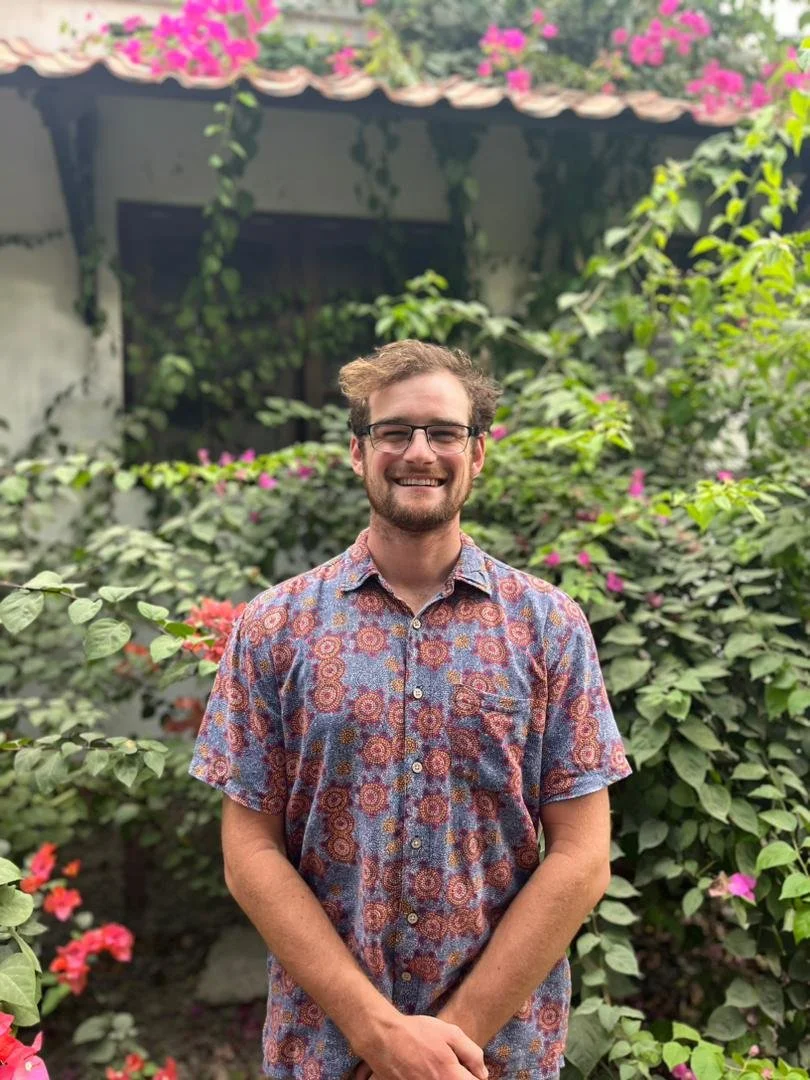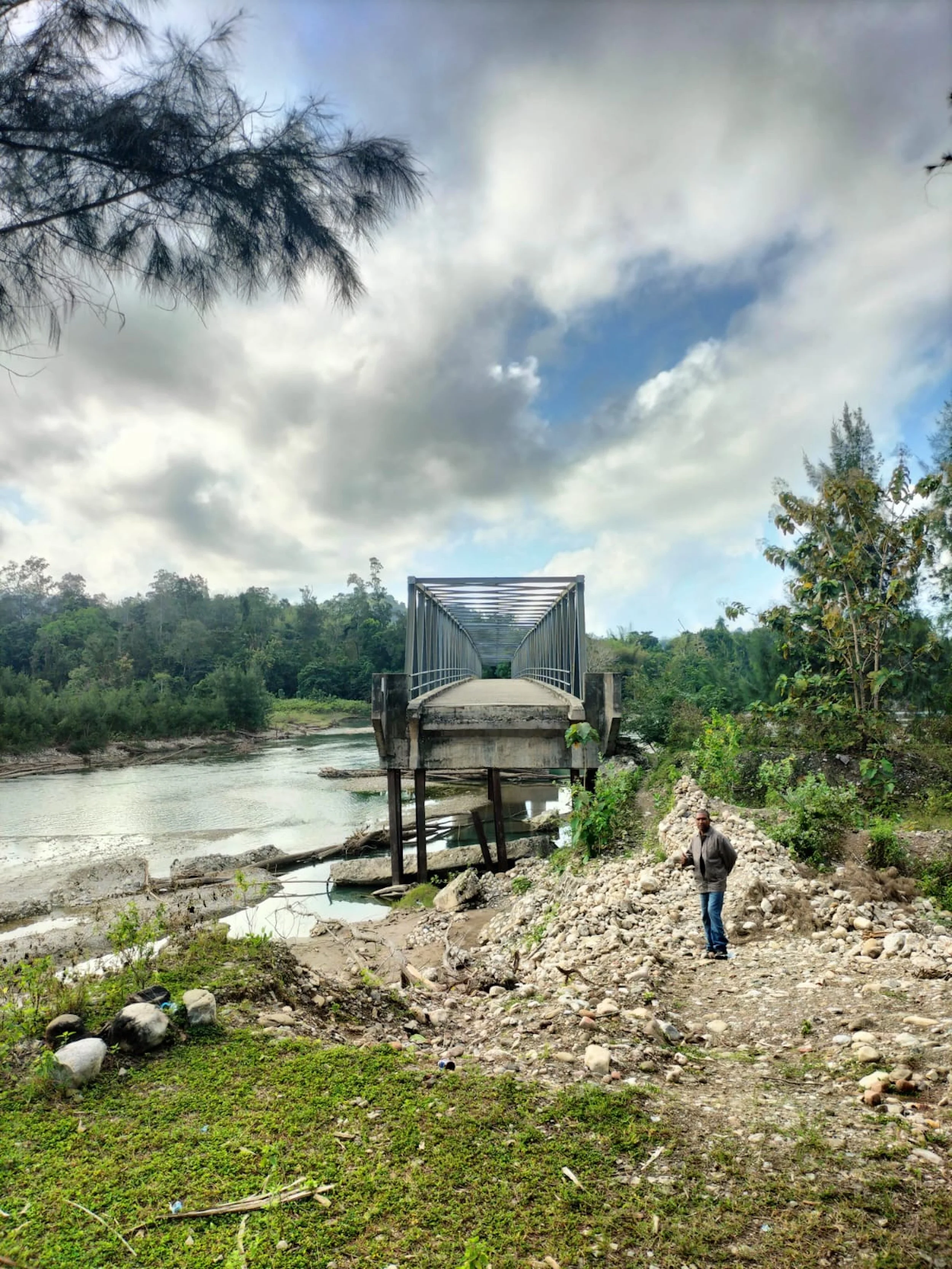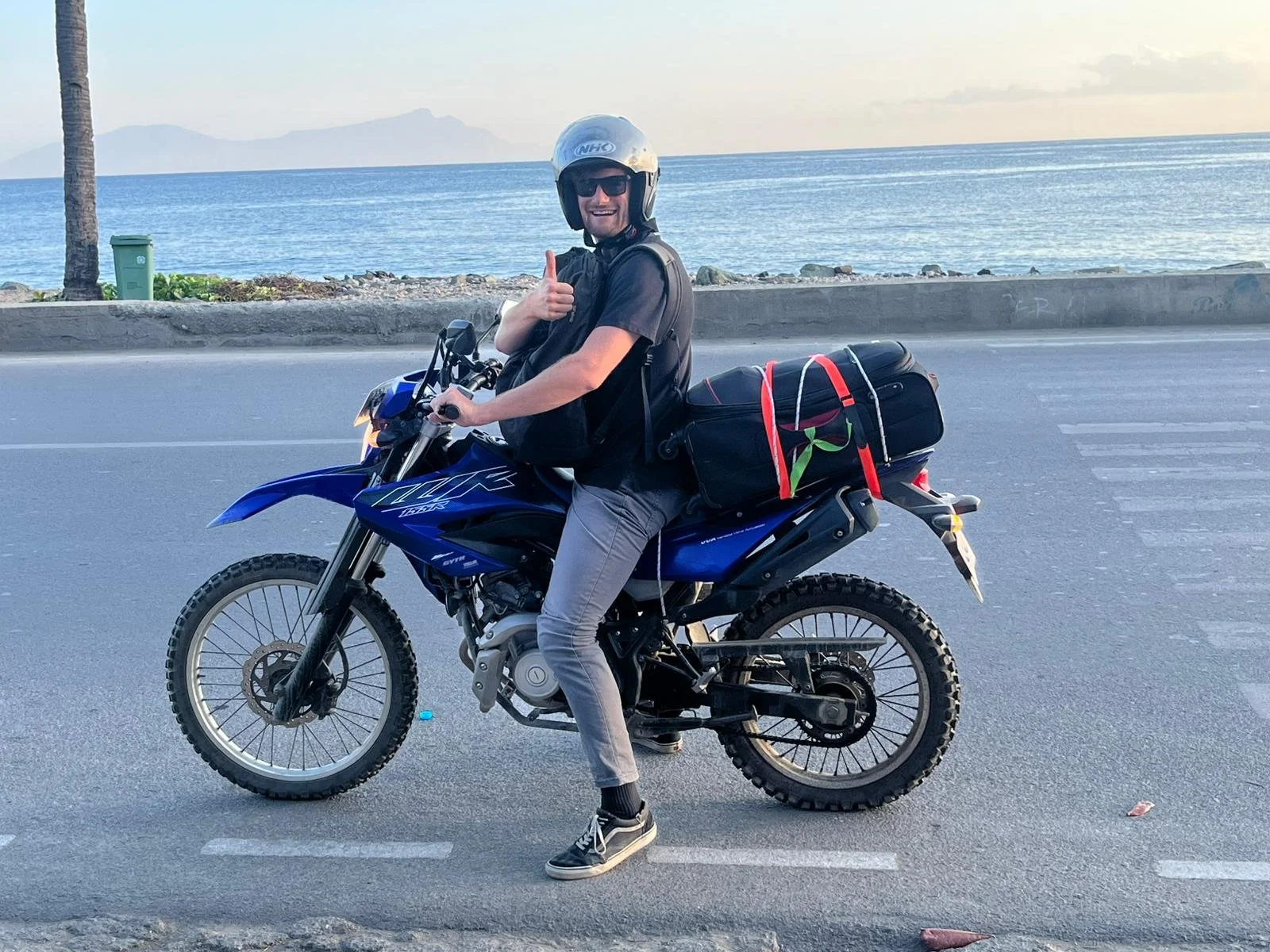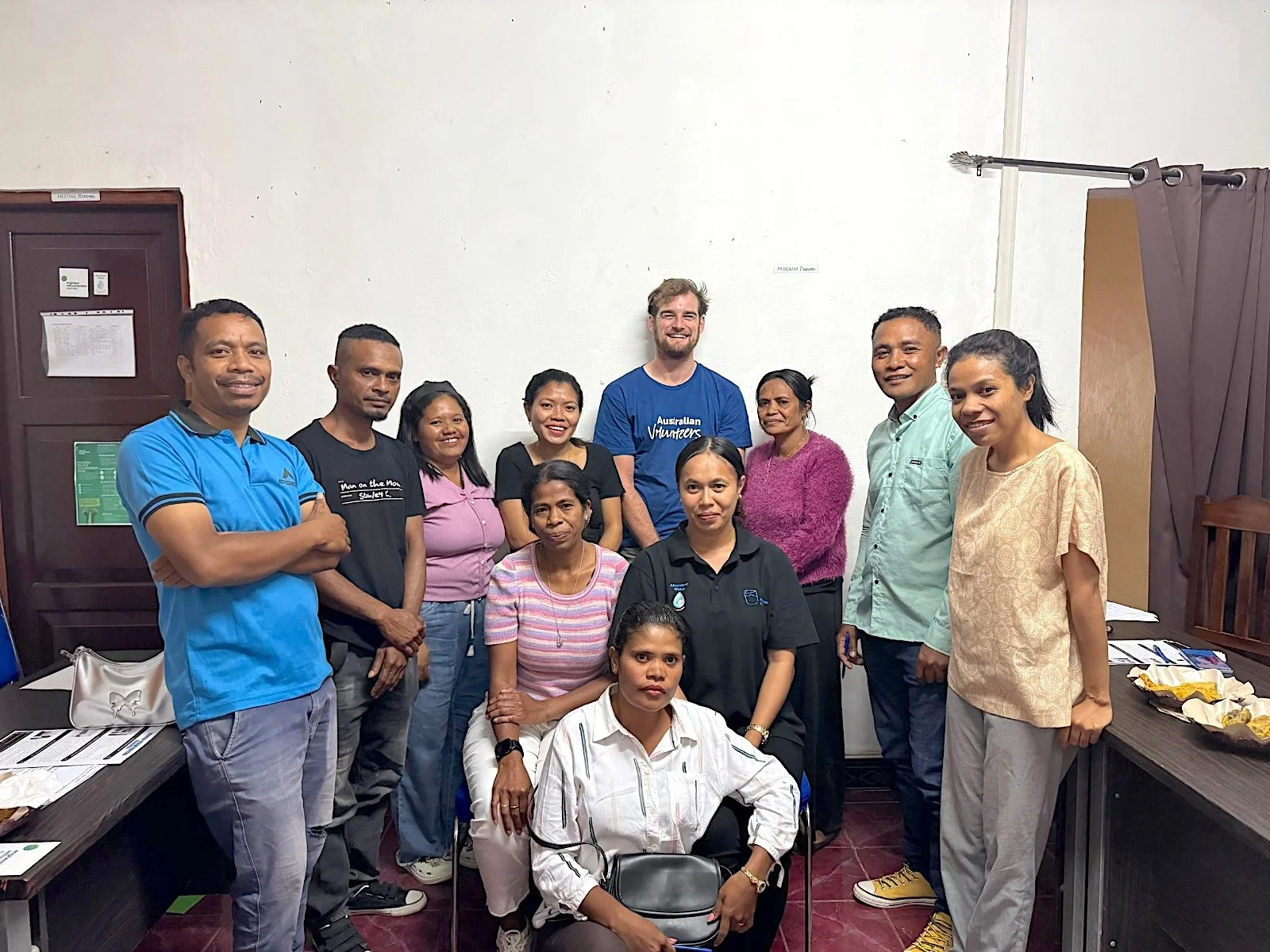Sustainability, Language and Leadership: A Maffra Draper fashions a new way - November 2025
Interview with the Abundant Water Program Supervisor, Chris Draper, in Timor-Leste
For Chris Draper, a young man from the small Central Gippsland town of Maffra, what began as a short-term volunteering opportunity to Timor-Leste soon blossomed into a life-changing journey. Brought to the former Portuguese colony by a world-famous bike race, he became a devotee, eventually committing to assisting the Timorese in tackling the challenges of development. Looking for opportunities, he found Abundant Water and its mission a good fit; a mission to help build a sustainable solution delivering the world’s most precious resource - clean water.
“I wasn't too sure what I wanted to do in life back then but coming to Timor made me think that working in the development space would be something that I wanted to do. I was looking around on the DFAT (Department of Foreign Affairs and Trade) website and viewing volunteering opportunities in Canberra and came across Abundant Water” Chris explains.
Draper, knowing that a formal qualification would be important, began studying a Bachelor of Development Studies at ANU. He also took on learning Tetum, the official language in Timor-Leste.
“I started working in government in 2020 and continued to study my degree part-time, while also volunteering with Abundant Water on the side. I knew that the experience with Abundant Water would help with getting further opportunities in the development space.”
In 2022, Chris graduated from the ANU and then began working at the Department of Social Services. While the role was a great opportunity to further his professional experience, he left the door open for a future role in development. By mid-2023, Chris made the difficult call to leave his comfortable job working in the public service He was in search of a new challenge, and he knew where he’d find it.
“Because I've been (to Timor) before, I knew what it would be like. It can be chaotic and busy, even though it's a small country. Everything from the social expectations to the road rules, it’s all so different. It feels larger than it is, Dili can be more of a bustling sort of place at times, even whilst operating on island time” says Chris.
“There was a steep learning curve even though I'd visited twice before. It was hard to really get a good grasp on some of the challenges. But in the first six months you really develop that understanding and realise what the enabling factors are in the society and with government.”
Chris explains further. “The Timorese might focus on different priorities than what you may expect in Australia. Family and culture play a greater role outside of work, salaries are shared with those around you, and developing relationships is integral to success. What may have seemed straightforward to myself was approached completely differently here, so there was a lot of trial and error”.
On the left, a bridge on the road to Suai funded by foreign aid sits unusable due to the approaches being washed away by flood. On the right, Chris Draper is smiling on his motorbike.
A key challenge when Chris first arrived was getting around. Many of Timor’s roads are in a constant state of repair - see our article on the subject. Despite hundreds of millions in foreign aid and government money being thrown at infrastructure development, the tropical seasons and Timor’s rocky, limestone soils effectively conspire against its road transport network.
“I’d just got my motorbike license in Canberra before coming to Timor. I had a little bit of experience on the bike, but not a lot. I wasn't super confident, especially on tougher terrain”
Chris rides a Yamaha XTZ150, a light-weight motorcycle designed principally for off-road use. In Timor-Leste, motorbikes are the cheapest, most common form of transport.
“I've been pretty lucky. I haven't had any crashes, which has been good. Sometimes I'll have my girlfriend on the back, and we'd be going down a steep incline or if the bike is a little bit heavy with filters on the back, it can just slip out from underneath me in the mud or on cobbled rocks.”
Chris is mindful of the risks but without transport, Abundant Water’s mission fails.
“We visit vendors in remote locations and bring filters on the bike to sell. The bike can get pretty heavy at times, making the hilly locations more challenging to ride. But it's all part of it, you know.”
Chris says that “all of that travel, meeting people in remote locations, has been an amazing experience”. But he also acknowledges that probably the best aspect has been the personal improvement in his own abilities of self-reliance, resilience and patience, something he did not expect.
The roads, he explains, can pose new risks very quickly. “There could be a fallen tree, a child, or a goat on the road, and there's drops in the roads of one or two feet from land slips. You must really drive carefully. It can be slower in a car because of this, a lot slower.”
They say the best part of the journey is the surprise and wonder, but in Timor that’s not always the case.
“On the way down to the Southern Coast there’s a bridge that's completely collapsed. It crosses a really big, wide river that's maybe two or three feet deep depending on the point of the season. There's no other way to get across it apart from riding through it” says Chris. He leaves the surprise and wonder to the end. “It’s full of crocodiles”.
Chris Draper and Abundant Water’s vendors in Timor: From left to right, at the back: Joanito, Luiz, Mirandolina, Paulina, Chris (Program supervisor), Ernestina, Lino and Allianca (Intern); and at the front: Auxilia, Libania (Staff) and Jevina.
Despite the risks, Chris believes that the project delivering clean water solutions to schools, homes and anywhere else it’s needed is gaining traction.
“We have a good product, we've sold 13,000 of these water filters across Timor, so there's been a big, big interest” says Chris. But he also says there’s still a lot of work to do. And there’s been some surprises.
“Everybody is concerned about health, but the understanding around health issues, how the filters work and how clean water can prevent health issues is what's different. Many Timorese follow traditional practices for medical treatment, or engage in other health treatments based on longstanding superstitions. That’s been a steep learning curve for me. Just trying to understand how everyday people think about health and water contamination, and what may resonate with them. You’d think medical staff would be the first to understand the importance of using the filters, but it's not always the case.”
Uptake of the water filter units hasn’t been an issue however, as Abundant Water works through these kinds of challenges with an anthropological lens to identify local solutions to clean water education.
One challenge in Timor-Leste is encouraging locals to demand more from their products. “In Timor, there's a lot of products which are really poor quality, where you can use it for a few weeks and then they break. Timor has become a sort of dumping ground for all the cheap quality products. That's what the Timorese have grown up with. They haven't grown up with good services or quality parts due to lower incomes. Coming in with an ongoing service and spare parts therefore has taken some adjusting” says Chris.
He echoes a comment he’s heard people around him say repeatedly. “Once something stops working, we just throw it out.” For Chris, the cultural shift from short-term thinking to taking a longer, more sustainable view has underpinned his work. “We're shifting into a long-term mindset. I was looking at the stats recently, and more and more customers are understanding how replacement parts work due to more sales. Customers are thinking more long-term with the product, and that’s creating a sustained impact. That’s been really great to see.”
Ultimately, according to Chris, the benefits of filtered water are becoming increasingly obvious. There is no doubt amongst users that the filters have reduced the prevalence of waterborne illness in their families.
“We get a lot of anecdotal evidence coming back regarding how people feel. There is a significant drop off in sickness. Customers send a message or maybe write a review or something like that saying: ‘Oh yes, I was coughing quite a bit from the water I consumed previously but now we consume filtered water. It's fresh, tastes good and I feel healthier. Then you have parents who talk about their kids no longer getting diarrhoea after consuming water from the filters. I’ve talked to a few people as well who've had medical issues, and they've also felt better after consuming filtered water.”
Draper is proud of the impact the work that he and his team are doing. “Those kinds of stories are very motivating for us. It's good to see that the product actually makes a difference in people's lives, especially those in rural areas.”
After 6 years working with Abundant Water as both a volunteer and program supervisor, Chris Draper will return to Australia in December. He remains optimistic about the future in Timor.
“I feel like the organisation is a more professional outfit and is poised to take on bigger opportunities. I think we've made some great advancements in developing our vendors’ business understanding and now we are ready to expand to more remote areas of Timor-Leste.”
In whatever Chris chooses to take on in the future, there is no doubt that in Timor he’s fashioned real change.
Abundant Water, an Australian volunteer-led organisation, is taking action, now. Our work is already making a tangible difference in Timor-Leste, the Philippines, and Laos. But we need your help to go further, faster. Even the smallest contribution can mean clean water, better health, and renewed hope for families in need.
Act now - Because clean water can’t wait
